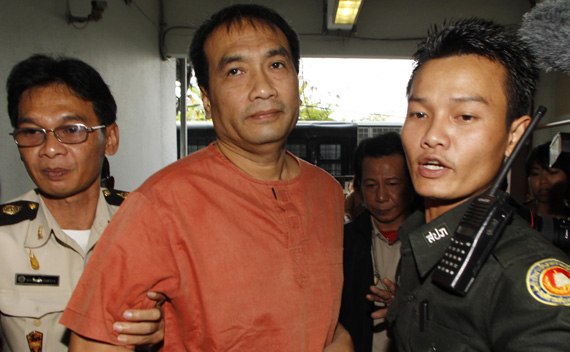U.S. Citizen Sent to Jail in Thailand for Insulting the King
More on:

As detailed in a comprehensive New York Times article by Thomas Fulller, an American citizen was sentenced this week to two and a half years in jail in Thailand for translating portions of a book that is critical of the Thai monarch. The accused, Joe Gordon, is a Thai-American but a U.S. passport holder.
This sentencing comes on top of a wave of other tough, and frankly absurd, crackdowns by the Thai government on alleged anti-monarchical sentiment online. Just a few weeks ago, a Thai court sentenced an elderly man, suffering from cancer, to twenty years in prison for allegedly sending several text messages critical of the crown. The court was unable to prove that the man, who hardly seemed like a technological savant, had actually sent the messages in question, but neither could he prove that he had not sent them – so, by default in the mixed-up lèse-majesté trial system, he got a long jail sentence.
Now, one of the most strident opposition politicians, MP Mallika Boonmetrakul, has gone much farther. She has called for other countries to assist Thailand in cracking down on anti-monarchical sentiment online – in essence, to help Thailand crush free speech. If other nations, and tech companies, will not help Thailand, she has suggested that the Thai government should simply shut down sites like Facebook in Thailand (for more on this see New Mandala). The government of Prime Minister Yingluck Shinawatra, which came into office in July seeming somewhat more willing to rethink the lèse-majesté laws and especially their application online, now has been so battered by the opposition and by its poor management of Thailand’s flooding that it, too, is trying to appear as pro-monarchy as possible and so seems to be actually stepping up the online crackdowns as compared to the previous, royalist, Democrat government. Even some of the most tame media outlets in Thailand, like the Bangkok Post, have quietly begun to question whether this war on lèse-majesté online has not gotten so over-the-top that it is costing Thailand’s reputation internationally and stifling free speech.
What will be the response of Facebook, Twitter, YouTube, and other companies? In the past, some of the companies, like YouTube, have been willing to bend, expressing support for Thailand’s unique cultural sensitivities and removing some videos perceived as insulting to the Thai monarchy. But at some point social media, file-sharing, and online video companies are simply going to have to push back – hard – to show the Thai government how far it is straying out of accepted norms for the Internet in free nations.
More on:
 Online Store
Online Store
